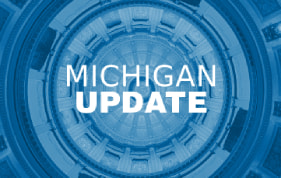A new online resource to bolster the ongoing response to the opioid crisis recently launched. The website, Addiction Free CA, hosts an interactive data dashboard, project resources, and treatment provider locator to support the California Medications for Addiction Treatment (MAT) Expansion Project.
1814 Results found.

HMA Summary of CMS Innovation Models Pertaining to Radiation Oncology, Kidney Care, and End-Stage Renal Disease
This week, our In Focus section reviews the four new payment models addressing radiation oncology, kidney care, and end-stage renal disease released by the Centers for Medicare & Medicaid Services (CMS), through the Center for Medicare and Medicaid Innovation (CMMI) on July 10, 2019. Two of the models would be mandatory in randomly selected geographies and were published as proposed rules: the End-Stage Renal Disease Treatment Choices (ETC) and Radiation Oncology (RO) models. For these two proposed models, stakeholders have until what will likely be mid-September 2019 (60 days following publication of the forthcoming publication of the proposed rules in the federal register) to submit comments to CMS. The other two models are voluntary demonstrations: the Kidney Care First (KCF) and Comprehensive Kidney Care Contracting (CKCC) models. This is the first time this administration has proposed a mandatory model since the hip fracture and cardiac bundled payment models, which were cancelled in 2017. For these two models stakeholders will not have the opportunity to submit comments.

California 2019-20 Budget Overview
This week, our In Focus section reviews the California fiscal 2019-20 budget. California Governor Gavin Newsom signed his first budget, and much of its related legislation on June 27, 2019. The budget appropriates $214.8 billion ($147.8 billion General Fund) in total spending with $19.2 billion in reserves. The total reserves includes $16.5 billion in the Rainy Day Fund, $1.4 billion in the Special Fund for Economic Uncertainties, $900 million in the Safety Net Reserve, and nearly $400 million in the Public School System Stabilization Account.

Webinar Replay: Initiating a Successful Medicare Advantage Plan: Strategic, Operational and Planning Considerations
This webinar was held on July 24, 2019.
If your managed care organization or health system is considering joining the growing market for Medicare Advantage (MA) plans, including Special Needs Plans (SNPs), or expanding your MA service area, now is the time to start planning for a 2021 launch.
During this webinar, HMA Managing Principal and former CMS Deputy Administrator for Medicare Jonathan (Jon) Blum is joined by HMA Managing Principal Mary Hsieh and Principal Julie Faulhaber. Together, they discussed the strategic, operational, and planning considerations every organization must address before initiating a successful Medicare Advantage plan. Our experts discussed regulatory concerns, operational readiness, benefit structure, marketing, risk management, and other key considerations.
Learning Objectives
- Find out what your organization needs to make a go/no go decision on the launch of a Medicare Advantage plan, including an assessment of financial feasibility, member opportunity, capital requirements, and operational capabilities.
- Understand the federal requirements and timelines and internal preparations involved in filing a successful application to initiate a Medicare Advantage plan.
- Learn why Medicare Advantage plans serve as a foundation for further efforts to initiate SNPs.
- Understand the key differences between SNPs and Medicare Advantage plans, including special SNP requirements such as the Model of Care.
Speakers
- Jon Blum, Managing Principal, Washington, DC
- Julie Faulhaber, Principal, Chicago
- Mary Hsieh, Managing Principal, Atlanta
Who Should Listen
Executives from managed care organizations, insurers, hospitals, health systems and other entities considering the launch of a Medicare Advantage plan such as a Special Needs Plan or considering a Medicare Advantage Service Area Expansion.

Webinar Replay: Unpacking the MassHealth One Care Procurement Databook: Key Considerations for Strengthening the Program, Advancing Health Equity
This webinar was held on July 16, 2019.
The Massachusetts One Care program, which went out to bid this year, is an 1115A Duals Demonstration (both a Financial Alignment Demonstration and a state demonstration) for dually eligible Medicare and Medicaid beneficiaries age 21-64 at the time of enrollment and living with disabilities. To assist potential bidders, the state released a Databook containing historical demographic, cost and utilization information for individuals who are eligible for One Care but not currently enrolled.
During this webinar, HMA experts broke down the One Care Databook and provided an eye-opening review of the data that can help regulators, health plans, providers and community-based organizations strengthen the program and advance health equity for the eligible population. Speakers also used sophisticated geo-mapping software to illustrate geographic variation in the cost and utilization of both Medicare and Medicaid services.
Learning Objectives
- Gain insights into the eligible population and their use of Medicare and Medicaid services.
- Consider regional variation in the cost and use of Medicare and Medicaid services.
- Learn more about Medicare Part D service use among the eligible population.
- Take stock of the opportunities to advance health equity gleaned from the data.
HMA Speakers
Ellen Breslin, Principal, Boston
Eric Hammelman, Principal, Chicago
Anissa Lambertino, Senior Consultant, Chicago
Who Should Listen
Federal and state regulators, Medicaid officials, and officials from the Centers for Medicare & Medicaid Services; executives of health plans, health systems, community-based organizations, and providers of long-term services and supports (LTSS).

Dual Eligible Financial Alignment Demonstration Enrollment Update
This week, our In Focus section reviews publicly available data on enrollment in capitated financial and administrative alignment demonstrations (“Duals Demonstrations”) for beneficiaries dually eligible for Medicare and Medicaid (duals) in nine states: California, Illinois, Massachusetts, Michigan, New York, Ohio, Rhode Island, South Carolina, and Texas. Each of these states has begun either voluntary or passive enrollment of duals into fully integrated plans providing both Medicaid and Medicare benefits (“Medicare-Medicaid Plans,” or “MMPs”) under three-way contracts between the state, the Centers for Medicare & Medicaid Services (CMS), and the MMP. As of May 2019, approximately 372,600 duals were enrolled in an MMP. Enrollment was flat from May of the previous year.


